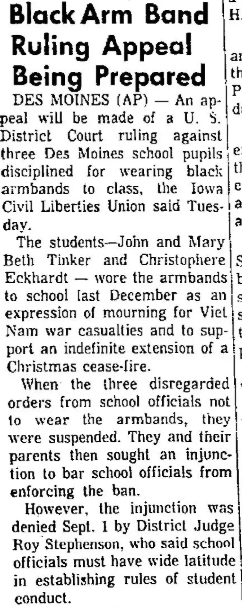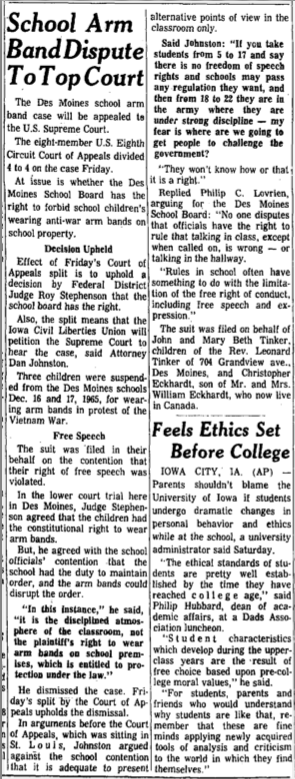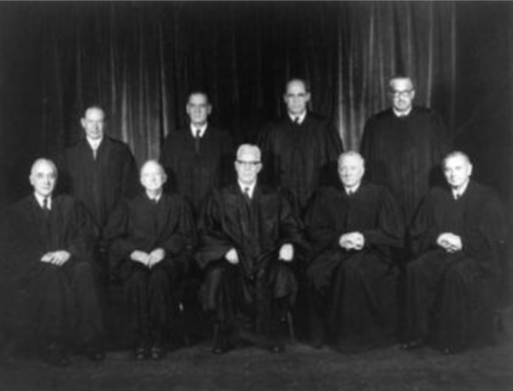In September 1966, the Federal District Court heard the case and sided with the school, ruling that the armbands disrupted other students’ learning, thereby justifying the ban and the students’ suspension. The Tinkers disagreed with the ruling so they decided to appeal the case.
"[School districts] have the responsibility for maintaining a scholarly, disciplined atmosphere within the classroom. These officials not only have a right, they have an obligation to prevent anything which might be disruptive of such an atmosphere...The regulation under the circumstances was reasonable and did not deprive the plaintiffs of their constitutional right to freedom of speech."
- U.S. District Court Judge Roy Stephenson (Bittle, Drake Law Review, 2000)




